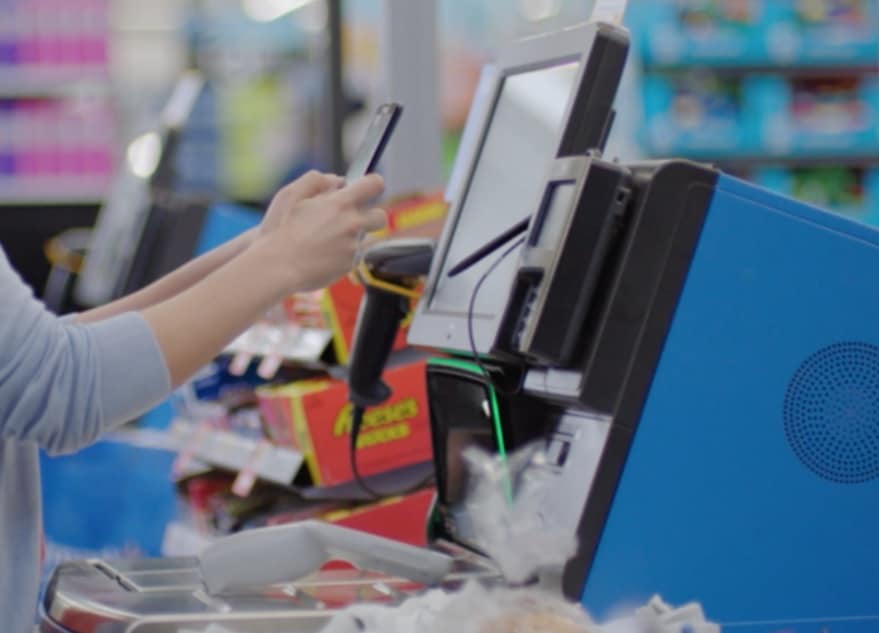
“People don’t like self-checkout,” a labor leader told Rhode Island state lawmakers last week. “It’s as simple as that.”
Or is it?
Members of the state’s House Corporations Committee heard from some who dislike self-checkouts, but mostly got an earful from opponents of a bill that would severely restrict their use – and give shoppers a discount for using them.
As introduced by Democratic state representative Megan Cotter last month, the bill would be the first of its kind to limit all grocery stores to no more than eight self-service checkout stations, as long as there are also at least eight open cashier-staffed checkout lanes. Plus, any shopper scanning ten or more items at a self-checkout will be entitled to a 10% discount.
“This bill is a gross overreach into private enterprise and will only create long lines and higher prices on groceries,” Robert Goldberg, lobbyist for the Greater Providence Chamber of Commerce, wrote in a letter to the committee.
While Teamsters union legislative director Paul McDonald and several committee members spoke in support of the bill during a hearing last week, most of the responses the committee has gotten so far from business leaders are strongly opposed to the proposal.
“To what length can government dictate the operations of a business?” Scott Bromberg, President & CEO of the Rhode Island Food Dealers Association, wrote to the committee in a letter released ahead of the hearing. “Grocery stores are facing a difficult time finding employees (and) many customers prefer the convenience provided by self-checkout stations that allow them to save time. We urge the committee not to create policies that discourage and penalize businesses from operating.”
“Why should grocery stores be penalized for offering an automated option?” asked Christopher Carlozzi, the Rhode Island State Director for the National Federation of Independent Business. “This legislation needlessly interferes in the operation, and the ability to run, a business in Rhode Island. It dictates how certain businesses operate and could prove costly by demanding discounts be offered for customers that use automated checkout lanes.”
Even the head of an independent, family-owned grocery store weighed in. “For years I had the mindset that self-scanners were impersonal and lacked the service we wanted to provide,” Tracy Clements Anthony, President of Clements Marketplace, told the committee. “I could not have been more wrong.” After installing self-checkout stations last year, “we have improved service level to all of our customers and are able to service our community better,” she said. “Simply because a store offers an option for a customer to handle their own goods at the point of purchase should not give the state a right to regulate the number of machines (or) mandate a discount.”
Some of Cotter’s colleagues on the committee, however, spoke in support of the bill. Representative Patricia Serpa called self-checkouts the “beginning of the creep, where technology replaces everything and everybody.” To business leaders’ arguments that cashiers are hard to find these days, “my fear,” she said, “is that if these machines take over every single one of those positions, the people aren’t going to ever to come back.”
Representative Michelle McGaw expressed concern how “personal interaction has really gone by the wayside,” and self-checkout is just another example. “It’s about the jobs, it’s about the numbers, and it’s about the businesses,” she said. “But it’s also about community and our relationships with one another.”
But is it the government’s role to mandate personal interactions at the grocery store? Are shoppers really entitled to compensation for choosing to go it alone? And if we give in to automation at the grocery store – will “the creep” have machines coming for your job next?
If you thought the debate between those who love and those who hate self-checkout was heated – in Rhode Island, it seems the real debate has only just begun.
Image source: Walmart










